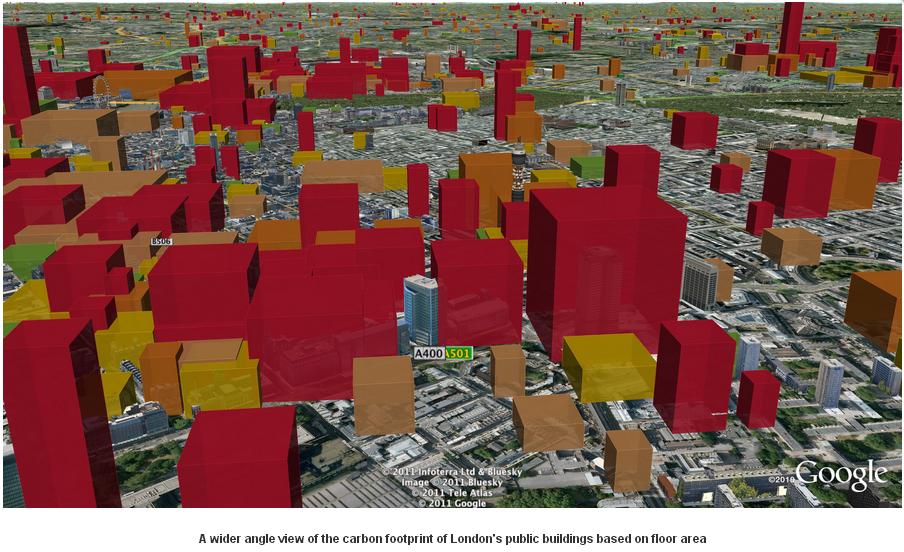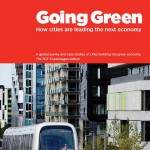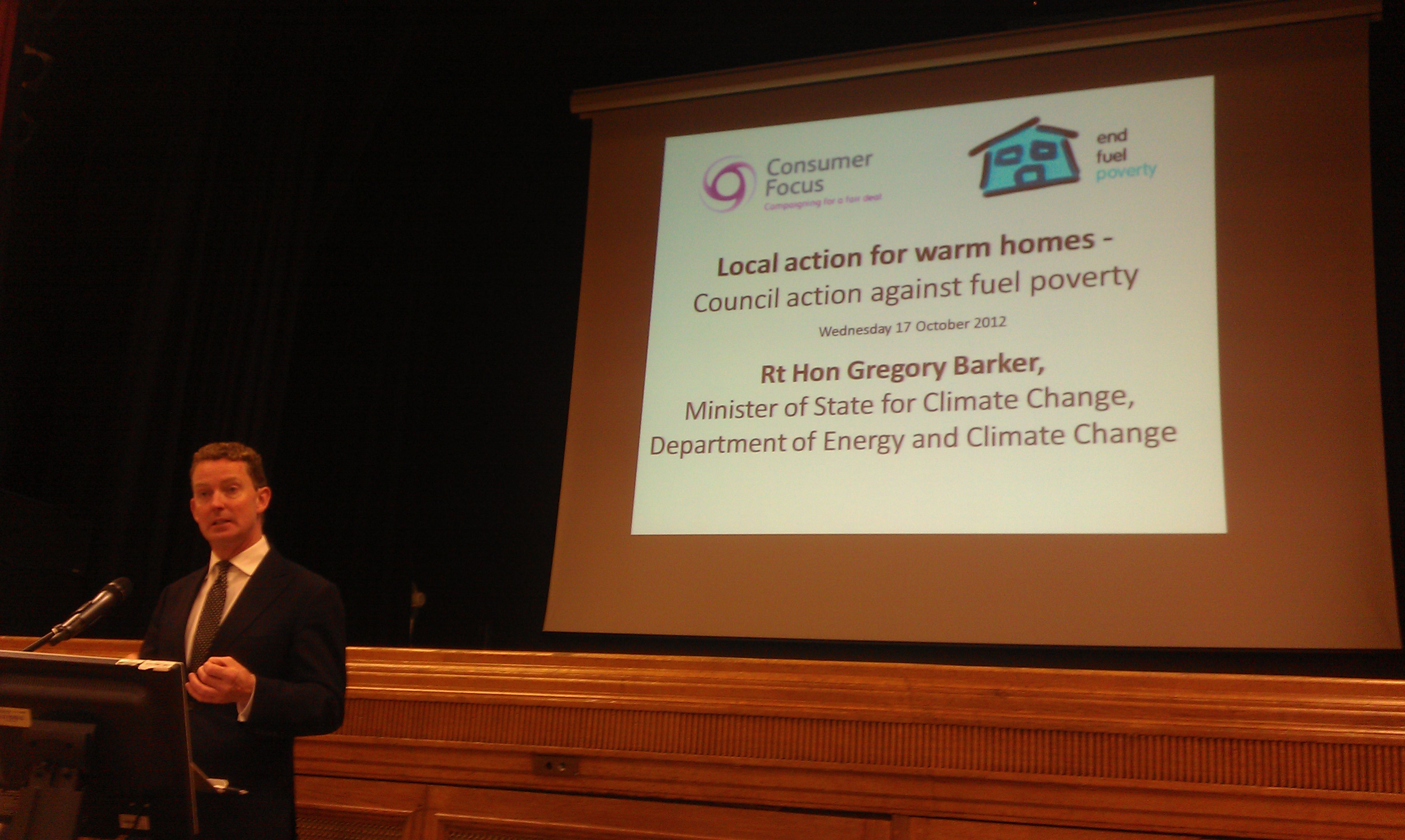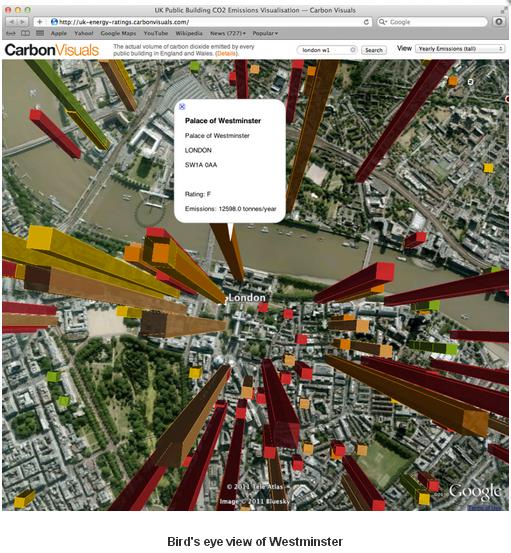Site search:
-
What’s new?
Energy for London Tags
Brent Buildings Camden Carbon Emissions CHP Cities Climate Adaptation Community Heating Community Initiatives Croydon Data DECC Decentralised Energy Distribution ECO Energy Costs Energy Efficiency Enfield FIT Fuel Poverty Funding Green Deal Hackney Haringey Housing Islington Lambeth Library Local Authorities Mayor Newham Ofgem Olympics Photovoltaics Planning RE:FIT RE:NEW Renewable Energy Retrofit Southwark Tower Hamlets Transport Waltham Forest Waste WestminsterEnergy Archives:
- February 2021 (1)
- January 2021 (15)
- December 2020 (15)
- November 2020 (9)
- October 2020 (3)
- August 2020 (5)
- July 2020 (3)
- June 2020 (4)
- April 2020 (10)
- March 2020 (5)
- February 2020 (2)
- January 2020 (3)
- October 2019 (1)
- September 2019 (4)
- August 2019 (2)
- July 2019 (1)
- August 2018 (1)
- November 2016 (8)
- October 2016 (8)
- September 2016 (2)
- August 2016 (8)
- July 2016 (14)
- April 2016 (12)
- March 2016 (16)
- February 2016 (8)
- January 2016 (4)
- December 2015 (1)
- November 2015 (1)
- October 2015 (16)
- September 2015 (3)
- June 2015 (1)
- May 2015 (1)
- April 2015 (1)
- March 2015 (1)
- February 2015 (1)
- January 2015 (1)
- December 2014 (18)
- November 2014 (4)
- August 2014 (8)
- July 2014 (7)
- June 2014 (25)
- May 2014 (8)
- April 2014 (4)
- March 2014 (12)
- February 2014 (7)
- January 2014 (13)
- December 2013 (11)
- November 2013 (15)
- October 2013 (15)
- September 2013 (18)
- August 2013 (5)
- July 2013 (20)
- June 2013 (33)
- May 2013 (8)
- April 2013 (16)
- March 2013 (25)
- February 2013 (14)
- January 2013 (20)
- December 2012 (23)
- November 2012 (23)
- October 2012 (25)
- September 2012 (14)
- July 2012 (12)
- June 2012 (43)
- May 2012 (20)
- April 2012 (8)
- March 2012 (40)
- February 2012 (39)
- January 2012 (40)
- December 2011 (22)
- November 2011 (40)
- October 2011 (33)
- September 2011 (48)
- August 2011 (40)
- July 2011 (58)
- June 2011 (41)
- May 2011 (80)
- April 2011 (38)
- March 2011 (33)
- February 2011 (25)
- January 2011 (24)
- December 2010 (3)
- November 2010 (7)
- October 2010 (6)
- September 2010 (7)
- August 2010 (1)
- July 2010 (2)
- June 2010 (4)
- May 2010 (1)
- March 2010 (3)
- February 2010 (3)
- December 2009 (5)
- November 2009 (2)
- October 2009 (3)
- July 2009 (3)
- June 2009 (1)
- April 2009 (1)
- March 2009 (1)
- February 2009 (1)
- January 2009 (1)
- December 2008 (2)
- October 2008 (1)
- September 2008 (1)
- July 2008 (1)
- March 2008 (2)
- January 2008 (2)
- October 2007 (1)
- September 2007 (3)
- July 2007 (1)
- March 2007 (1)
- February 2007 (3)
- November 2006 (3)
- August 2006 (1)
- February 2006 (1)
- May 2005 (1)
- February 2004 (1)
Author Archives: Admin
Planning reforms ‘totally ignore climate change’, warn green groups
October 2012: BusinessGreen article highlighting that “Green groups have today warned that planning reforms that the government predicts will encourage billions of pounds of new investment in energy projects “totally ignore climate change”.
The new Growth and Infrastructure Bill, published yesterday, brings together a range of measures intended to give energy and building companies the confidence to invest and boost economic growth
It includes provisions to make it easier for utilities to change designs mid-project to incorporate new energy-efficiency technology with out having to restart the planning process…” Read the full story here.
The Department for Communities press release can be viewed here and a background note to the Bill can be downloaded here and the actual bill here. Friends of the Earth have issued the following news release.
London should not be a ‘no-go’ area to suppliers meeting their energy efficiency obligations
17 October 2012: Over 100 people came together in Islington’s Assembly Hall for the End Fuel Poverty Coalition’s Local Action for Warm Homes event. The aim of the conference was to show how councils, working with the End Fuel Poverty Coalition, can play a central role in helping the Government meet its statutory target to eliminate fuel poverty (as set out in the Warm Homes and Energy Conservation Act 2000). Energy Minister Greg Barker MP addressed the audience on current Government action to tackle fuel poverty.
Energy for London asked the Minister about how proposals to change the definition of fuel poverty – which correctly take housing costs into consideration – will lead to a doubling in the number of fuel poor households in London (see previous post for further details). Mr Barker stated that:
- In terms of tackling fuel poverty London needs to recognised as a special case
- He would not allow London to be a “no-go area” for energy suppliers in meeting their energy efficiency obligations (especially in central London) simply because of the higher costs of delivery
- DECC had no specific solutions on tackling fuel poverty issues in London as yet – but the department has a good working relationship with the Mayor and that they would be following up on options following the conclusions of the current fuel poverty definition consultation.
‘RE:NEW is delivering again across London’
16 October 2012: The Mayor’s RE:NEW domestic energy efficiency programme has just tweeted that it is delivering again across London. Further details on how you can save “up to £300 a year on your energy bills” on the following link.
Posted in News
Leave a comment
The World’s Largest Solar Powered Rail Station
The Green Deal for social housing tenants and providers
October 2012: DECC have issued 10 ‘quick guides’ on the Green Deal. Links to each individual briefing follow below – and the full set can also be downloaded from the following DECC webpage.
- The Green Deal Assessment – what to expect
- Green Deal – how your business can benefit
- The Green Deal consumer protection quick guide
- Get help to keep your home warm – the Energy Company Obligation
- Moving into a home with a Green Deal
- The Green Deal – a new way to pay
- The Green Deal – post assessment
- Quick guide to the Green Deal for residential landlords
- Quick guide to the Green Deal for social housing tenants
- Quick guide to the Green Deal for social housing providers
The Power Book
 October 2012: Labour’s Shadow Energy and Climate team have established a website setting out some of their activities and key messages. One of the first things posted at www.shadowdecc.org.uk is a new publication called ‘The Power Book’, produced with support of the Local Government Information Unit (LGIU), the Labour environment campaign SERA and the Co-operative Party.
October 2012: Labour’s Shadow Energy and Climate team have established a website setting out some of their activities and key messages. One of the first things posted at www.shadowdecc.org.uk is a new publication called ‘The Power Book’, produced with support of the Local Government Information Unit (LGIU), the Labour environment campaign SERA and the Co-operative Party.
The book consists of a series of papers on initiatives being taken forward to develop community-led energy projects, ranging from the role that local authorities and community groups are playing, to the technologies such as microgeneration and district heating, that are being used. The foreword to the book by Shadow Energy Secretary of State Caroline Flint states that “we cannot neglect the potential for individuals and communities to create and save energy. In truth there are plenty of examples both here and abroad which demonstrate the potential of community energy as a low carbon driver…There is also a window of opportunity to increase community-level energy generation instead of creating a rigid framework to fit the old, centralised system.” Download the report here.
Carbon Visualisation
October 2012: A previous post highlighted how a campaign by the excellent Centre for Sustainable Energy managed to secure the release of a 40,000 dataset of public sector buildings Display Energy Certificates (DECs).
CSE have recently highlighted how this data has been used by a company called Carbon Visuals.

Some of the London building carbon data is illustrated above.
Carbon Visuals explain:
“With a grant from the UK’s Technology Strategy Board we have been exploring real-time visualisation and the visualisation of large data-sets. One of the results is an interactive visualisation of the carbon footprint of every public building in England and Wales – 40 thousand of them!
http://uk-energy-ratings.carbonvisuals.com/ The visualisation works in any browser that can run the Google Earth plugin but because the dataset is large, the plugin may perform sluggishly on slow computers. Or open in desktop version of Google Earth: http://uk-energy-ratings.carbonvisuals.com/kml/uk-emissions.kml “
Going Green – How cities are leading the next economy
 October 2012: LSE Cities report providing an up-to-date overview on the experiences of how cities around the world are making the transition to the green economy.
October 2012: LSE Cities report providing an up-to-date overview on the experiences of how cities around the world are making the transition to the green economy.
The report sets out that London is a leading ‘electric vehicle pioneer’ [p85] stating that “Over the last decade, London has become a prominent leader in progressive transport policies and is globally recognized for introducing congestion charging, the upgrading of public transport and more recently the promotion of cycling. These policies have contributed to a steady drop in car ownership across London, from an average of 0.81 cars per household in 1995 to 0.76in 2011. The city has also seen the introduction of about 2,300 electric vehicles, the largest number in any city to date, and for has been leading on the development of charging infrastructure for over five years.”
The report can be downloaded from the LSE cities website here.
Further information on the promotion of EV’s in London can be obtained through Source London and Mayor’s Electric Vehicles Delivery Plan. Progress on EVs in London was set out in a response to a recent mayoral question:
- It remains my aspiration that London be the electric vehicle capital of Europe with 100,000 EVs as soon as possible. London is already making good progress towards achieving this and is recognised as a leader in this area.
- The Source London EV charging network already the largest network in the UK – has around 700 charge points and is on target to have 1,300 by 2013, providing confidence for the growing EV market. This sits alongside grant support for home charging units with an offer due to launch in June.
- There are currently 2,400 electric vehicles and 27,500 hybrid vehicles registered in Greater London – some 16% and 23% respectively of all such vehicles registered in the UK – and these figures continue to grow. TfL are pro-actively working with the Energy Saving Trust to target fleets operating in London to boost their uptake of EVs.
‘Put green energy into local hands’
12 October 2012: Good letter in today’s Financial Times:
“Sir, Your report about how numerous German towns, cities and regions are leading the country’s Energiewende away from nuclear power towards renewables and energy efficiency makes for fascinating reading (“Market reforms move power to the people”, Analysis, October 10). This is what the UK government’s “green deal” and “green investment bank” should be all about – giving local authorities the resources to promote community renewable energy schemes, energy efficiency and microgeneration projects; and this may possibly allow for any profits to be reinvested into local services stretched to the limit in the current recession.
If cities such as Munich, Cologne and Hamburg can lead the way with such policies, why not Manchester, Glasgow and Cardiff or Fife, Caerphilly and the Shetland Islands? Local councils have a much greater appreciation of local energy needs and the energy-saving measures that can help reduce fuel poverty than Whitehall mandarins. I know there is a great appetite in local government for moving from an overly centralised energy market towards satisfying decentralised community energy needs.
If this policy was energetically pursued then I believe there would be no need to worry about the lights going out in 2015, and the billions of pounds of public money planned for new nuclear or shale fracking investment could rather be diverted to a clean, jobs-rich and sustainable energy alternative.
Brian Goodall, Chair, UK and Ireland Nuclear Free Local Authorities, c/o NFLA Secretariat, Manchester, UK”
Further funding to the ‘Know Your Rights’ campaign
October 2012: The GLA has approved £25,000 to support a further round of the Mayor’s annual ‘Know Your Rights’ campaign this winter. The authorisation note sets out that “the campaign, was first launched in 2009 and aims to help reduce the number of vulnerable and disadvantaged people in London experiencing poverty by raising awareness of advice, support and benefits to which they may be entitled. As part of his May 2012 Manifesto for Older Londoners, the Mayor pledged to continue to support this initiative.”
The ‘Know Your Rights’ campaign contributes to the Mayor’s Climate Change and Energy Mitigation Strategy – policy 7: Tackling fuel poverty in London by helping to ensure that the most vulnerable and disadvantaged groups can afford to keep their homes warm and help prevent ill health and winter deaths. It does this by encouraging Londoners to contact the Home Heat Helpline, an energy industry-led initiative to help households struggling with fuel bills.
‘Londoners in fuel poverty could double’
5 October 2012: Inside Housing pick up on a previous Energy for London post on how the number of households in London identified as being ‘fuel poor’ could double as a result in the change in the definition of fuel poverty.
Concerns over the true extent of fuel poverty in the capital have been raised for some time – with research from the Mayor suggesting that – compared to official statistics – one in four London households could in fact be affected. However, despite this, there remains no London-wide strategy for tackling fuel poverty. This issue was highlighted by the London Assembly’s inquiry into the issue earlier this year which recommended that:
“Recommendation 8: The GLA should, by July 2012 and in consultation with the energy companies and local authorities, develop an affordable warmth strategy for London. The plan should include: agreement on the risk mapping criteria; the identification of priority areas for intervention on the basis of risk mapping; a timeline for the programme to work in each of those areas between 2012 and 2016; and agreed measures to tackle some of the barriers to investment in London (such as parking restrictions and planning”
DECC recently stated that, in the new year, they will publish and consult on “an updated fuel poverty [for England] strategy to ensure resources are being used in the best possible way.” With government terminating Warm Front early on in 2013, one of its main fuel poverty programmes, and the Green Deal and ECO having very specific fuel poverty targeted activities (ie. predominantly solid wall – or a more limited spend for all insulation measures, but only in low income areas) – it appears the national target to ‘eradicate fuel poverty’ by 2016 , as set out in the Warm Homes and Energy Conservation Act 2000, will not be achieved despite the proposed change in definition (see recent House of Commons research note for further information on this). This all makes the rationale for a coordinated programmes of activities to tackle fuel poverty, operating London-wide, ever more urgent.
Many London boroughs have programmes in place to help insulate dwellings in their area (some of which are listed here). The Mayor’s main insulation programme, RE:NEW, reported that it does not measure the number of fuel poor households treated (here and here and here) .
The Mayor does support a ‘Know Your Rights’ campaign which aims to encourage people to find out what support is available by calling Home Heat Helpline, an industry-led initiative which provides advice to households concerned over fuel bills or how to improve the energy efficiency of their home.
Practical Energy Saving for Eco-Schools
September 2012: Croydon and Carbon Trust practical guide specifically intended to help Eco-schools to deliver immediate energy cost savings when they are working on the Energy topic.



